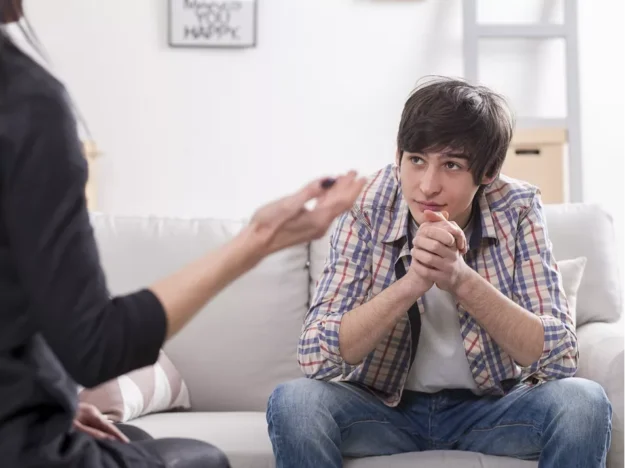
Protection of young people
Dove Adolescent Services has a strong culture surrounding safeguarding issues where staff feel empowered and confident in risk management and safeguarding. Staff are clear about their roles to protect young people and the need to communicate effectively with the ‘team around the child’ to create excellent multi-agency relationships.
Safeguarding
Our staff teams ensure that young people in the home feel that they are listened to, respected and involved in decisions made about them and the home. Young people should feel safe and staff need to ensure that young people are kept safe, this includes educating young people about safeguarding themselves.All staff receive training on how to recognise and be alert to any signs that a young person may be at risk of harm or abuse, this is refreshed annually.
Each young person’s care risk management plan will detail how we intend to safeguard young people from risks and young people must be clear about what this looks like both within and outside the home, and the various risks posed from all types of relationships they have. All young people are provided with information about whom to speak with if they have concerns including independent advocates, IRO, Ofsted and helpline services.
Staff need to create a culture of openness with young people so that they feel able to talk openly about any worries/ concerns they may have. Staff must also adhere to this policy and the guidance set by the local safeguarding partnership if they have concerns that a young persons is at risk of harm.

Managing Risk
The staff at each home are responsible for managing risk of all young people and must support young people to make appropriate choices to learn how to effectively manage their own risk. Each child has a detailed care risk management plan, within this details risks presented to each young person and measures taken to reduce or remove such risks where possible. These arrangements will be made in conjunction with the child’s placing authority. We recognise that taking risk is an essential part of learning for adolescents and we will support young people to take age/understanding appropriate risks to enable young people to ‘learn through doing’. For example, taking part in leisure activities/allowing opportunities to manage own risk whilst out in the community.
When a child places themselves at significant risk or makes poor choices, which put them at risk, staff need to support the young person to recognise why this is unacceptable and make professional judgements on what is best for the child at that time to prevent harm, as a reasonable parent would. At all times when there are young people present in the home staff are required to ensure that at least one member of staff is in the immediate living areas of the home. Within multi occupancy and 2:2 homes this is to minimise the risk to other young people and enable staff to monitor the ‘mood’ of individuals within the home and their impact upon the shared environment, in many instances this will ensure that ‘minor’ incidents do not escalate beyond reasonable bounds. In single occupancy homes this is still the required practice to ensure full awareness of occurrences within the home.
Staff must also ensure that hazards within the home are removed or avoided through good management of Health and Safety. However, this shouldn’t prevent a young person from carrying out everyday tasks to learn to manage their own risk such as cooking/helping with household maintenance. The young people we care for are particularly vulnerable to exploitation and abuse therefore staff receive training throughout their employment with regard to the signs and symptoms which indicate this may be occurring.
Exploitation
It is recognised that young people in residential care can be targeted and vulnerable to exploitation for a number of reasons. They can be coerced, enticed, or utterly desperate. It robs them of their childhood, self-esteem and positive opportunities for good health, education and could criminalise them. They can find themselves in exploitative positions that they feel they cannot get out of. This can take the form of sexual exploitation, county lines, female genital mutilation, radicalisation, modern slavery and human trafficking. It is imperative to understand that young people cannot give ‘informed consent’ to their own exploitation.
Staff are trained to recognise these various forms of exploitation and take appropriate steps.
Missing from home
There will be various contributory factors involved in young people ‘running away from care’. Where we are aware of this factor on initial referral, the risk will be managed in line with the individuals care risk management plan and developed in partnership with the placing authority and local missing persons team. Staff will endeavour to support young people to understand the risks and dangers involved in absconding behaviours and support them to seek help.
Where a young person continues to display absconding behaviours, the manager of the home will work in partnership with the young person’s placing authority to develop effective strategies for managing risk to the young person by holding regular strategy meetings.
Digital technology
In today’s society, digital technologies are the primary way of communicating, this includes using social networking, web enabled chat, text messaging and telephone. Whilst we recognise the benefits of communicating in this method for our young people, we also see how this can make young people vulnerable and open to placing themselves at risk of harm/abuse.
Our young people have access to a computer to use for education and leisure pursuits and as such have direct access to the Internet. This will enable the young people to explore information sites to aid their development and knowledge. When young people come to live with us we risk assess if using such methods of communication could lead to safeguarding concerns, this will be done in line with the placing authority. When restrictions need to be made in an emergency this must be done and recorded as an E-safety incident, stating the reasons such a decision was made.
When the young people are using the computer, staff must be aware of the sites that are being accessed and ensure that young people are informed of the potential dangers of chat-lines and communication sites, monitored in line with that individual young person’s risk assessment. All young people/those with parental responsibility will be required to sign an acceptable user policy prior to using the computer and undertake relevant e-safety training in line with Child Exploitation and Online Protection.
Young people are not permitted to take photographic images of employees/other residents without their permission.
All staff undergo Prevent training to understand how extremist ideologies may be presented as attractive to young people, particularly those most vulnerable to this form of exploitation. Staff will adhere to government guidelines on certification of films, games and age restrictions on social networking. Young people will not be allowed to have any films/games that are above their age certification and these will be removed from their possession. Staff will be responsible for managing when young people could be subjected to any desensitising material viewed via online social networking sites, e.g. Facebook/YouTube and should carry out appropriate E-safety work.

Young people’s views
Consultation with young people is at the heart of all the work we do and the decisions we make about the child’s life are made with their involvement. We do this through holding regular house meetings, one to one sessions with the child, key worker sessions and carrying out focus work.

Enjoyment and Achievement
We provide our young people with a range of diverse learning experiences such as activities and holidays which provide opportunities for positive and trusting relationship building. We are proactive in recognising any achievements made by the young people and celebrate these with them.

Positive Relationships
We work hard to build constructive and warm relationships with young people. We aim to have a consistent team of care staff around the child and try to reduce the impact of people leaving/moving homes as much as possible as we recognise the detrimental effect this can have on children with attachment difficulties.